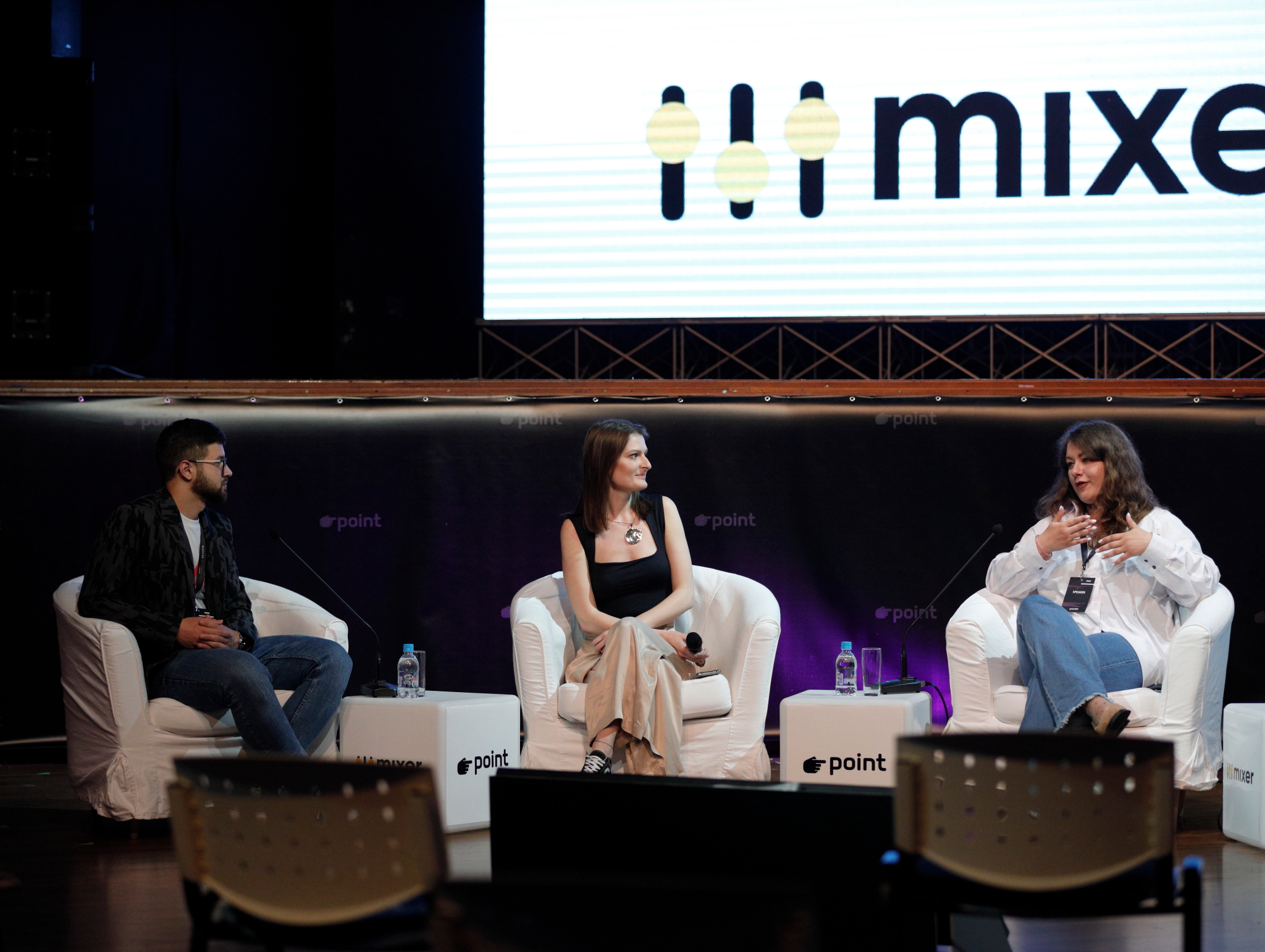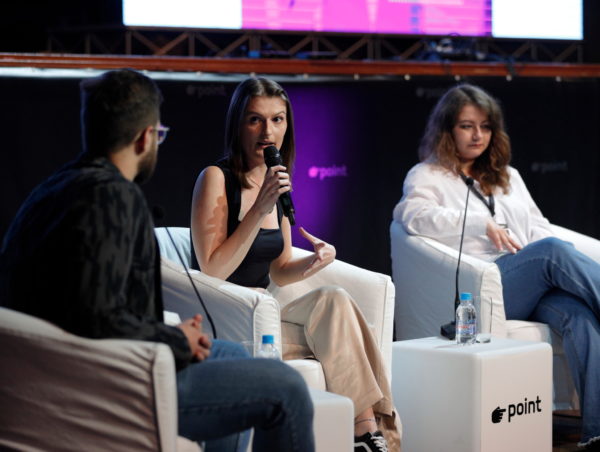Unmasking influence – Social change brought by new media: YouTube and podcasts have a great potential for building communities
As part of the panel called “Unmasking influence – Social change brought by new media”, created in collaboration with Mixer, our speakers discussed the role of new media formats, such as podcasts and YouTube, in spreading false information and propaganda and how to fight it.

Photo: Vanja Čerimagić
The panel was moderated by Marija Ćosić, a journalist and a researcher at a fact-checking platform Raskrinkavanje.
Kerim Hodžić, a social media manager for Balkan Investigative Reporting Network in Bosnia and Herzegovina noted that a popular way to spread disinformation and other types of malicious content is through fast consuming formats, such as YouTube shorts and Instagram Reels, but also podcasts. He also pointed out that YouTube is one of the biggest disinformation hubs and that disseminators of disinformation online often use simple, person-to-person language. When combined with manipulated footage and/or images, that type of content can have a great impact.
Daryna Zarzhytska, director of a Ukrainian media outlet Sebto Media, and a host of a popular podcast, talked about how YouTube and podcasts have a great potential for gathering and developing online communities. As a podcaster herself, she pointed out that she has a trustful and intimate relationship with her audience, and noted that the aspect of community can be very dangerous when it comes to spreading disinformation and propaganda.

Photo: Vanja Čerimagić
Marija, leaning on her experience as a fact-checker, noted that spreading disinformation can be quite profitable for those who engage in it. Daryna agreed, and, again, pointed out the role that community building plays in monetizing disinformation and propaganda.
Reflecting on the disinformation landscape in Ukraine, she said that vulnerable times are good times for disinformation, propaganda and conspiracy theories:
“In vulnerable times, there are no simple responses to complex questions and propaganda gives simple responses to your complex questions”.
When asked how to make professional and educational content online more attractive and louder than the misinformative one, Kerim said that we need to try to make content using a more simple, human, approachable, person-to-person language. He also noted that it is important for NGOs and professional media outlets to spread awareness of disinformation circling online.
Author: Nerma Šehović